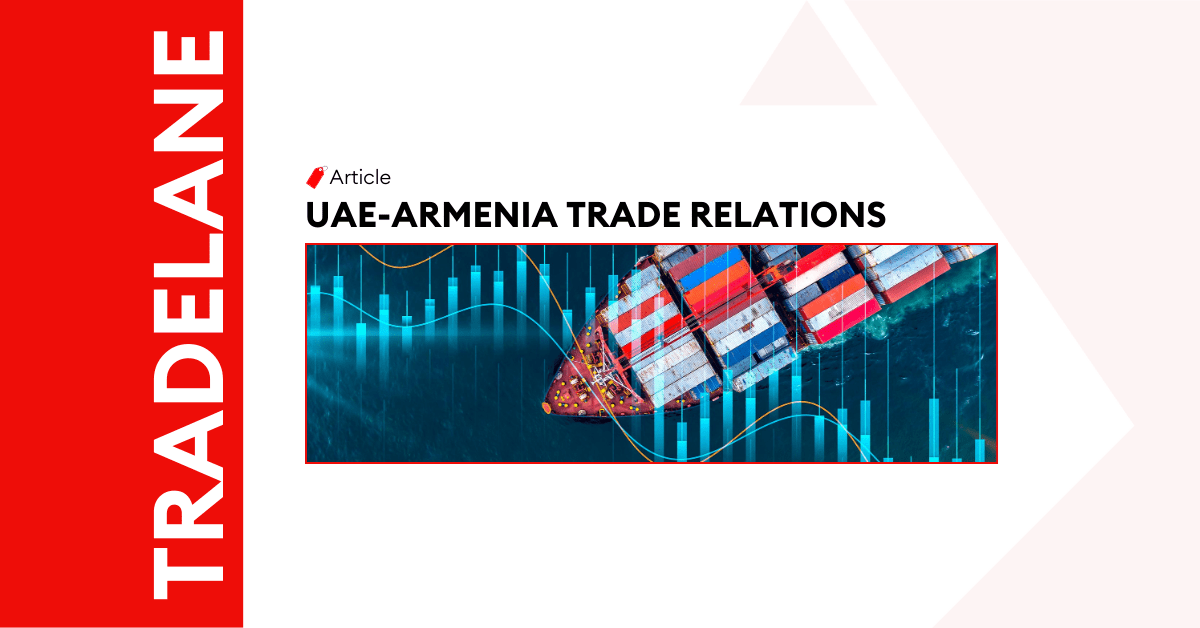
In-Depth Guide to UAE-Armenia Trade Relations
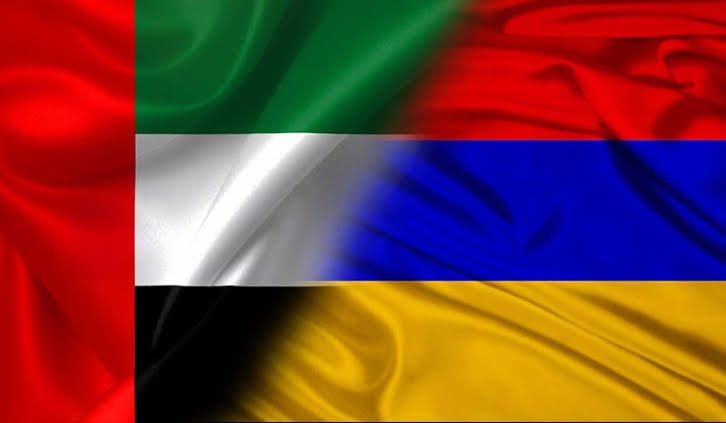
Introduction
The trade relationship between the UAE and Armenia has seen substantial growth in recent times, reflecting the strategic importance of their bilateral trade.
Positioned at the crossroads of global trade routes, the UAE and Armenia maintain a vibrant synergy leading to economic cooperation, diversified trade activities, and mutual benefits. This growing trade lane supports various industries and increases investment opportunities, showcasing the potential for continued growth and development in both nations.
Comparative Economic Snapshot of UAE and Armenia
Insights into the UAE's Economic Landscape
The UAE boasts a diverse and resilient economy characterized by substantial growth and strategic diversification.
According to recent forecasts, the country’s GDP is expected to grow by 4.2% in 2024, driven by robust non-oil sector performance and strategic economic reforms. This growth is supported by significant investments in infrastructure, technology, and sustainable energy, positioning the UAE as a global economic powerhouse.
Industries Powering Economic Growth in the UAE
- Oil and Gas: Traditionally the backbone of the economy, contributing significantly to GDP and export revenues.
- Tourism: Iconic attractions like the Burj Khalifa and Palm Jumeirah attract millions of visitors annually.
- Aviation: Major airlines like Emirates and Etihad connect the UAE globally.
- Logistics: Advanced infrastructure, including Jebel Ali Port, supports the UAE’s role as a global trade hub.
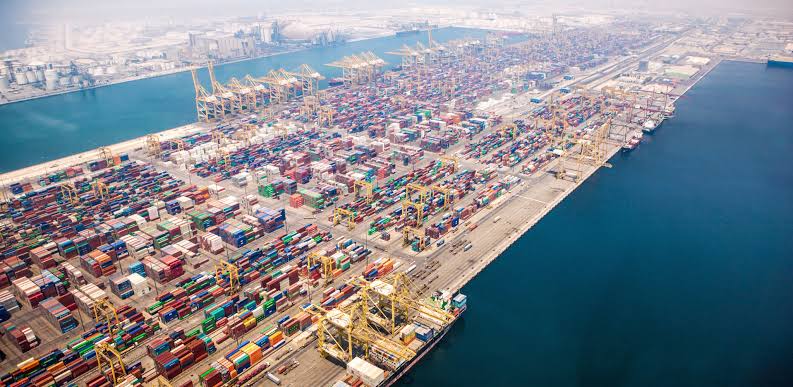
Top Exports of the UAE
The UAE’s top exports include crude oil, refined petroleum products, aluminum, and precious metals. These commodities are crucial for the country’s export revenue and economic stability.
Major Trading Partners of the UAE
The UAE maintains robust trade relationships with several key partners, including China, India, Japan, and the United States. These partnerships are vital for the UAE’s export-oriented economy, facilitating extensive trade activities across various sectors.
Insights into the Armenian Economy
Armenia’s economy, while smaller than the UAE’s, exhibits robust growth and significant potential. In 2023, Armenia’s GDP stood at approximately $19.5 billion, reflecting steady economic progress.
The country’s strategic focus on economic diversification and reforms has positioned it as a promising market in the South Caucasus region. Key sectors driving this growth include information technology, agriculture, mining, and manufacturing.
Why Invest in Armenia?
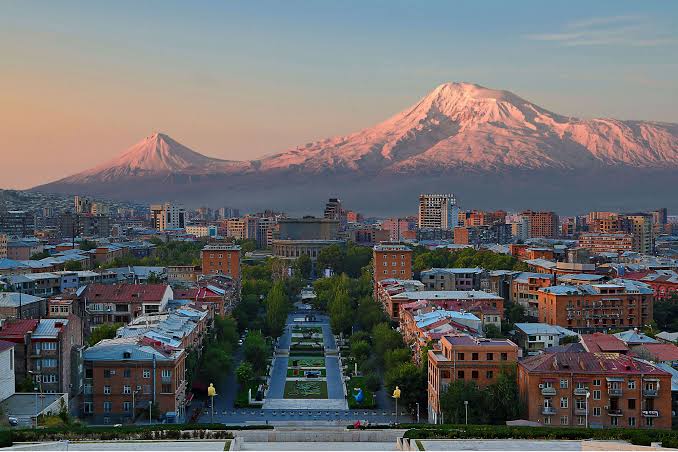
- Oil and Gas: Traditionally the backbone of the economy, contributing significantly to GDP and export revenues.
- Tourism: Iconic attractions like the Burj Khalifa and Palm Jumeirah attract millions of visitors annually.
- Aviation: Major airlines like Emirates and Etihad connect the UAE globally.
- Logistics: Advanced infrastructure, including Jebel Ali Port, supports the UAE’s role as a global trade hub.
Strategic Location and Connectivity
Armenia, strategically positioned at the crossroads of Europe and Asia, serves as a vital bridge between diverse markets. Its location offers easy access to both Eastern and Western markets, making it an attractive destination for investors seeking to expand their reach. Additionally, Armenia has free trade agreements with countries in the Eurasian Economic Union (EAEU), providing businesses with duty-free access to a market of over 180 million people.
Attractive Investment Climate
Armenia offers a favorable investment climate with a range of incentives designed to attract Foreign Direct Investment (FDI). The country has implemented significant economic reforms, including streamlined business registration processes and favorable tax policies. Armenia’s flat income tax rate and competitive corporate tax rates make it an appealing destination for businesses looking to optimize their operational costs. The government also offers various incentives for investments in priority sectors such as energy, IT, agriculture, and manufacturing.
Skilled Workforce and Innovation Potential
Armenia boasts a highly educated and skilled workforce, particularly in the fields of information technology, engineering, and science. The country is known for its strong emphasis on education, producing a talent pool that is capable of driving innovation and growth. Armenia’s IT sector, in particular, has seen rapid expansion, with the government actively supporting tech startups and innovation hubs. This dynamic environment creates opportunities for investors looking to tap into cutting-edge technologies and innovative solutions.
Commitment to Sustainable Development
Armenia is committed to sustainable development, focusing on environmental protection, renewable energy, and social equity. The government’s emphasis on sustainable practices aligns with global trends and offers investors opportunities in green technologies, renewable energy projects, and socially responsible businesses. By investing in Armenia, businesses can contribute to the country’s sustainable growth while benefiting from a stable and supportive investment environment.
In conclusion, Armenia’s strategic location, favorable investment climate, skilled workforce, and commitment to sustainability make it an attractive destination for investors looking to explore new opportunities in a growing market.
Introduction to the UAE-Armenia Trade Lane
The UAE-Armenia trade lane is characterized by diverse and complementary economic activities, which enhance bilateral trade relations between these two nations.
Positioned strategically, the UAE is a global hub connecting the East and West, while Armenia acts as a bridge between Europe and Asia. Collaborations between the two nations in IT, agriculture, mining, and manufacturing reflect their shared commitment to economic diversification and innovation.
Major Sectors Driving UAE-Armenia Trade
The UAE and Armenia trade relationship thrives on several key industries:
- Information Technology (IT): Armenia is emerging as a regional tech hub with significant investments in IT and innovation.
- Agriculture: Armenia’s fertile land supports substantial agricultural production, including fruits, vegetables, and livestock.
- Mining: Rich in minerals, Armenia exports copper, molybdenum, and other valuable resources.
- Manufacturing: The sector includes machinery, textiles, and food products crucial for both domestic and international markets.
Top Exports and Imports between the UAE and Armenia
Primary exports from Armenia to the UAE include gold, diamonds, and jewelry, while key imports from the UAE consist of machinery, vehicles, and consumer goods. This bilateral trade leverages each nation’s strengths and market needs.
Major Trading Partners in the UAE-Armenia Trade Lane
Armenia maintains strong trade relationships with Russia, China, and Germany, while the UAE’s major partners include China, India, and the USA. These wide-reaching connections extend trade activities and economic growth in UAE-Armenia trade.
Essential Shipping Routes and Transportation Modes
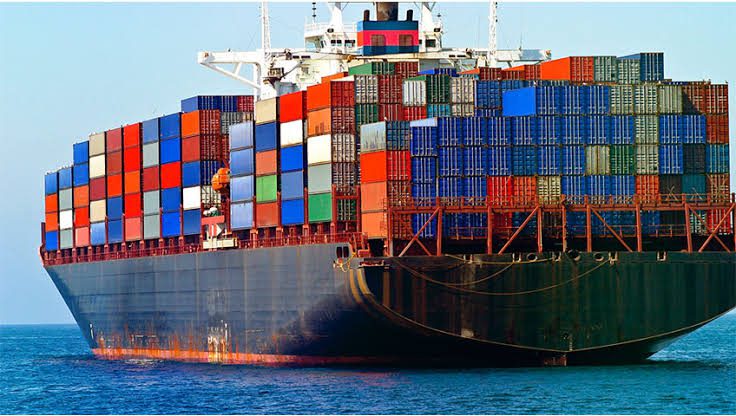
Navigating Transport Corridors
Key Transport Corridors to Armenia
The UAE-Armenia trade lane utilizes three primary transport corridors:
- West Corridor: This route involves European ports such as Poti and Mersin, providing a direct connection to European markets.
- East Corridor: Connecting through Central Asia via countries like Kazakhstan and Russia, this corridor leverages extensive rail and road networks. It ensures efficient long-distance cargo movement and connects landlocked Armenia to the global market.
- South Corridor: Running through Iran and the Persian Gulf, this path offers a direct maritime route to reduce transit times and costs. It enhances the overall efficiency of trade between the UAE and Armenia.
Strategic Shipping Routes Connecting the UAE and Armenia
Sea Freight Details
Sea freight forwarding services for Armenia support the bulk movement of goods from the UAE. The strategic location and advanced port infrastructure in the Emirates also enable these high-volume maritime logistics. This transport mode also offers cost-effective solutions for businesses engaged in bilateral trade.
Main Shipping Routes between UAE and Armenia
The primary shipping routes between the UAE and Armenia involve a combination of sea and land logistics.
Goods are typically shipped from Jebel Ali or Khalifa Port to Batumi Port in Georgia, followed by overland transport to Yerevan. Transit times can vary, generally taking 20-30 days depending on the specific route and cargo requirements. This intermodal transport ensures cost-effective and efficient cargo service to Armenia.

Air freight enhances the UAE-Armenia trade lane, offering a fast and reliable option for transporting high-value and time-sensitive goods.
Mainly, it enables industries requiring expedited delivery, such as electronics, pharmaceuticals, and perishable goods. Air freight services deliver goods quickly and efficiently in order to maximize supply chain efficiency.
Major Ports in UAE-Armenia Trade Lane
UAE Ports
- Jebel Ali Port: One of the largest container ports globally, handling significant volumes of cargo with state-of-the-art facilities.
- Khalifa Port: Known for its advanced infrastructure, it connects over 70 ports worldwide.
- Zayed Port: Plays a crucial role in supporting Abu Dhabi’s industrial zones and logistics networks.
- Port Rashid: Recently redeveloped, it is a key container port with connections to major global trade routes.
Ports Connecting Armenia
- Port of Vanadzor: Although Armenia is landlocked, it relies on this port through transit agreements for its maritime needs.
- Georgian Ports (Batumi and Tbilisi): These ports are critical links for goods moving between the UAE and Armenia, facilitating efficient cargo transit via Georgia.
Key Airports and Airlines
Several key airports and airlines operate within the UAE-Armenia trade lane, ensuring efficient air cargo transportation:
UAE Airports
- Dubai International Airport: A major global hub handling significant volumes of cargo with advanced logistics facilities. It serves as a key gateway for air freight, connecting the UAE to Armenia and other international destinations.
- Al Maktoum International Airport (Dubai World Central): Known for its expansive cargo operations, it supports timely and efficient delivery of air cargo from Armenia to Dubai.
- Zayed International Airport (Abu Dhabi): A critical link for air cargo, offering comprehensive freight handling capabilities via the route to Armenia.
Armenian Airports
- Zvartnots International Airport (Yerevan): The main gateway for air cargo in Armenia.
- Gyumri Shirak Airport: Supports additional air freight operations in Zvartnots to enhance Armenia’s logistics capacity.
Airlines
- Emirates SkyCargo: Provides extensive air freight services, connecting the UAE with Armenia and other global destinations.
- Etihad Cargo: Offers comprehensive air cargo solutions, facilitating the movement of goods between the UAE and Armenia.
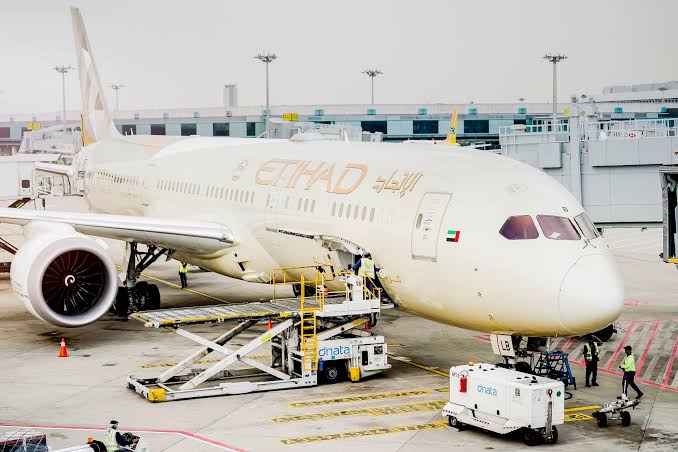
- Flydubai Cargo: Provides reliable air cargo services, ensuring timely and efficient delivery between the UAE and Armenia.
Understanding Global Customs and Trade Rules
Understanding Global Customs and Trade Rules
Export Documentation and Requirements
Exporting goods from Armenia requires specific documentation to ensure compliance with customs regulations and smooth transit of goods, including:
- Commercial Invoice: Details the transaction and value of the goods.
- Certificate of Origin: Certifies the origin of the goods being exported.
- Bill of Lading: Acts as a contract between the shipper and the carrier for sea freight.
- Export Declaration: Filed with Armenian customs to declare the export.
- Packing List: Provides detailed information about the shipment’s contents and packaging.
Import Regulations in Armenia
Armenia has a liberal import regime aimed at facilitating trade and economic growth. Key regulations to note when moving cargo to Armenia include:
- Customs Duties: Armenia applies a fixed tariff rate of 7.7% on most goods, with some variations for specific products.
- Value-Added Tax (VAT): A VAT of 20% is applied to most imported goods, calculated on the customs value plus any applicable duties and taxes.
- Prohibited and Restricted Imports: Certain goods are either prohibited or subject to restrictions, including firearms, hazardous materials, and specific pharmaceuticals.
Import Documentation and Requirements
Importing goods, such as international car shipping services to Armenia, involves providing the following documents:
- Commercial Invoice: Specifies the value and nature of the goods.
- Bill of Entry or Airway Bill.
- Certificate of Origin: Confirms the goods’ origin.
- Customs Declaration: Essential for determining duties and taxes.
UAE Customs Rules and Regulations
Documentation Required for Export
The necessary UAE export documents include:
- Commercial Invoice: Details the transaction and the value of the goods in transit.
- Certificate of Origin: Certifies the origin of the goods, confirming where they were manufactured.
- Export Declaration: Filed with UAE customs to officially declare the export of goods.
- Packing List: Provides detailed information about the shipment’s contents and packaging.
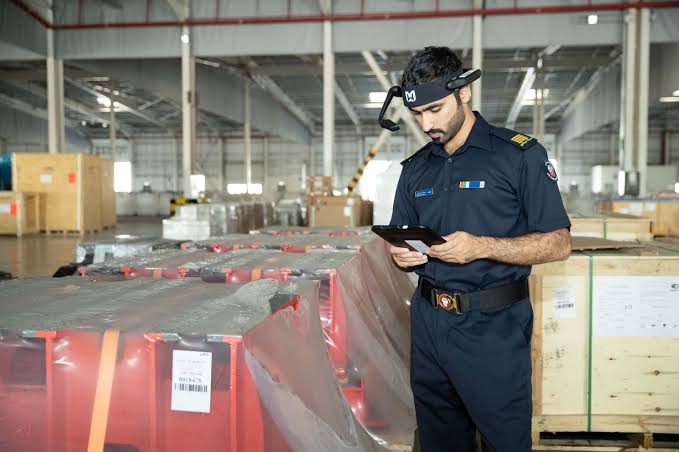
UAE Export Regulations
The UAE’s export regulations, as regarding shipping from Dubai to Armenia, include:
- Export License: Depending on the nature of the goods, certain exports may require a specific license from relevant authorities.
- Export Control Laws: Particularly for dual-use items applicable for both civilian and military use.
- Sanctions and Embargoes: Exporters must ensure that their goods are not destined for countries under international sanctions or embargoes, adhering to global trade standards.
UAE Import Regulations
Specific rules and regulations regarding import of goods into the UAE include:
- Customs Duties: Generally, a 5% customs duty is applied to most imported goods, with exceptions for certain items such as pharmaceuticals and food products.
- Value-Added Tax (VAT): A 5% VAT is applicable on most goods, calculated on the customs value plus any duties and taxes.
- Prohibited and Restricted Imports: Certain goods such as narcotics, gambling devices, and specific types of literature are either prohibited or restricted.
UAE’s Import Documentation and Requirements
For goods entering the UAE, the necessary documentation includes:
- Commercial Invoice: Details the transaction and value of the goods.
- Bill of Entry
- Certificate of Origin: Confirms the origin of the goods being imported.
- Detailed Packing List: Showing the shipment’s HS code and packing method.
- Import Declaration: Filed with UAE customs to declare the import and determine applicable duties and taxes.
- Food products also require (1) Original health certificate from the exporting country, and (2) Original Halal slaughter certificate (for meat and poultry).
Seizing Trade Opportunities and Overcoming Challenges
Exploring Emerging Trade Opportunities
Top Sectors with Promising Growth Prospects
In the UAE, sectors such as logistics, tourism, renewable energy, and technology are expanding rapidly. The UAE’s logistics sector benefits from state-of-the-art infrastructure, while its tourism industry thrives on world-class attractions and hospitality services. Renewable energy is also growing due to the nation’s commitment to sustainability.
In Armenia, the IT sector is thriving with significant investments in technology and innovation. Agriculture and mining also have significant growth potential, due to the country’s fertile land and rich mineral resources.
Strategic Agreements Strengthening Bilateral Trade
The UAE and Armenia have signed more than 25 trade agreements and MoUs, across various fields. These agreements enable better trade operations by reducing tariffs, improving regulatory frameworks, and encouraging mutual investments.
Notably, the UAE and Armenia are negotiating a comprehensive agreement covering services and trade. The aim is to increase foreign investment and bilateral cooperation across more economic sectors.
Emerging Markets in UAE-Armenia Trade
Within the UAE-Armenia trade lane, sectors such as renewable energy, technology, and agriculture are leading the way.
The push towards sustainability and innovation in both countries, for instance, creates opportunities for business investments in clean energy projects, technological advancements, and agricultural development. These emerging markets are set to drive future growth and strengthen economic ties between the two nations.
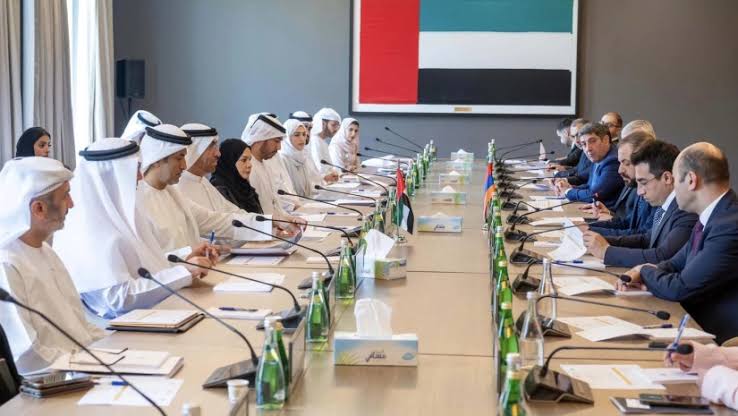
Addressing Trade Challenges
Language and Cultural Barriers
The trade relationship between the UAE and Armenia is sometimes hindered by language and cultural differences. Effective communication is crucial for successful business transactions, as understanding each other’s business etiquette, cultural nuances, and languages can significantly enhance trade negotiations and operations.
Political Instability
While both countries generally maintain stable political environments, regional tensions and geopolitical issues can adversely impact trade flows and investment confidence.
Businesses must stay informed about the political climate and prepare to adapt their strategies, accordingly, thereby ensuring continuous diplomatic efforts and cooperation to mitigate these risks.
Infrastructure Challenges
Infrastructure limitations, particularly in Armenia, can hinder the efficient movement of goods. Although significant improvements are ongoing, there is still a need for better transport and logistics infrastructure in both nations to support growing trade volumes.
Investments in roads, railways, and port facilities will overcome these challenges and enhance the trade lane’s efficiency.
Comprehensive Freight Solutions by Al Sharqi in UAE-Armenia Trade
At Al Sharqi Shipping, we provide extensive ocean and air freight services to ensure efficient and reliable cargo movement from the UAE to Armenia.
Our ocean freight services include Full Container Load (FCL) and Less than Container Load (LCL) options, offering flexibility for various shipment sizes. For time-sensitive deliveries, our air freight services ensure rapid transit and comprehensive tracking, making us a trusted partner for shipping from Dubai to Armenia.
Special Services for Cargo to Armenia
We offer specialized services tailored to meet diverse logistical needs for shipping from Dubai to Armenia. Our services include:
- Customs Brokerage: We expertly handle customs documentation and clearance procedures, ensuring smooth transit.
- Consolidation Services: We combine multiple shipments into a single container, reducing costs and optimizing efficiency.
- Air Cargo Charter Service to Armenia: Our dedicated air freight services cater to urgent or large-volume shipments, ensuring timely delivery with high levels of security and efficiency.
Ready to streamline your logistics? Contact Al Sharqi today to discover how our comprehensive solutions can elevate your business.
Whether it’s efficient freight forwarding, specialized cargo handling, or air freight to Armenia, our expert team is here to simplify your international trade. Partner with us for seamless logistics and exceptional service.
Conclusion
The UAE-Armenia trade lane has grown significantly, driven by strategic geographic locations, economic diversification, and robust trade agreements. Both nations offer diverse opportunities for investment and economic cooperation.
The future of the UAE-Armenia trade lane is promising, with continued investments in infrastructure, technology, and economic reforms. The signing of new sector-specific trade agreements will further enhance bilateral trade. Key industries such as IT, agriculture, and logistics also guarantee substantial opportunities for investment, ensuring economic growth and regional integration.
FAQ's
The UAE primarily exports crude oil, refined petroleum products, aluminum, and precious metals to Armenia.
Necessary documents include a commercial invoice, certificate of origin, bill of lading, export declaration, and packing list.
Major ports include Jebel Ali Port, Khalifa Port, Zayed Port, and Port Rashid in the UAE, along with the Port of Vanadzor in Armenia. Georgian ports like Tbilisi and Batumi also play crucial roles in this trade lane.
Key industries in Armenia with significant growth potential include information technology, agriculture, mining, and renewable energy. These sectors attract substantial foreign investment and drive economic growth.
Related Articles
Trade Relations Between UAE and Georgia – A Comprehensive Overview
The trade relationship between the United Arab Emirates (UAE) and Georgia has seen remarkable growth
In-Depth Guide to UAE-Armenia Trade Relations
Introduction The trade relationship between the UAE and Armenia has seen substantial growth in recen
Essential Insights into the UAE-Turkmenistan Trade Lane
Introduction The trade relationship between the UAE and Turkmenistan is increasingly becoming a corn




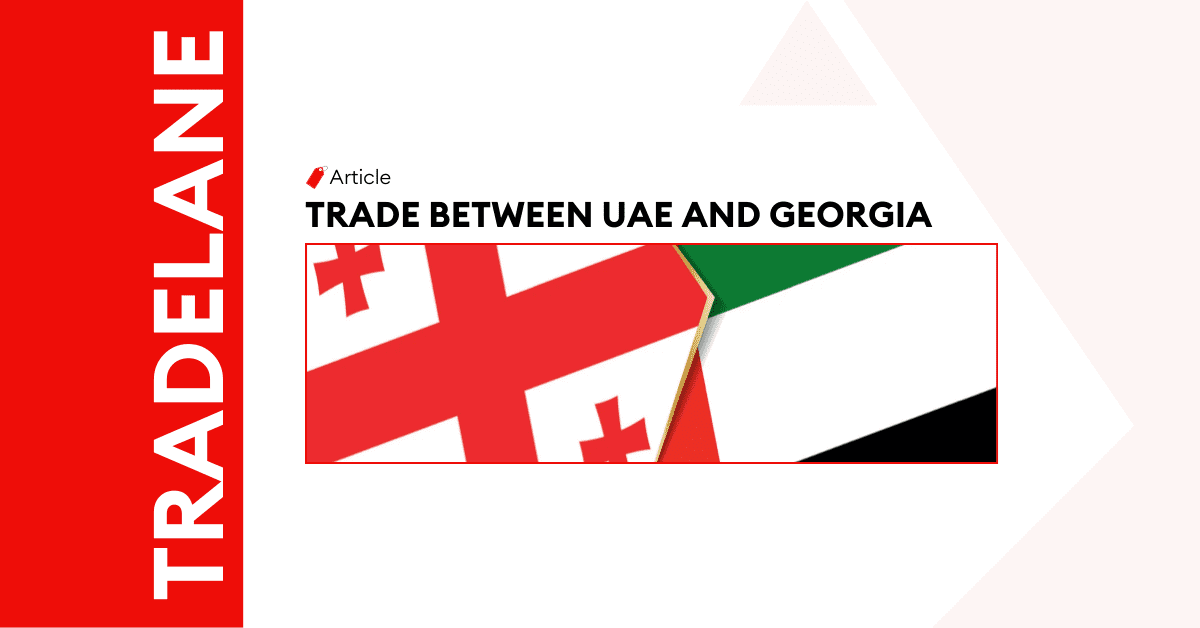
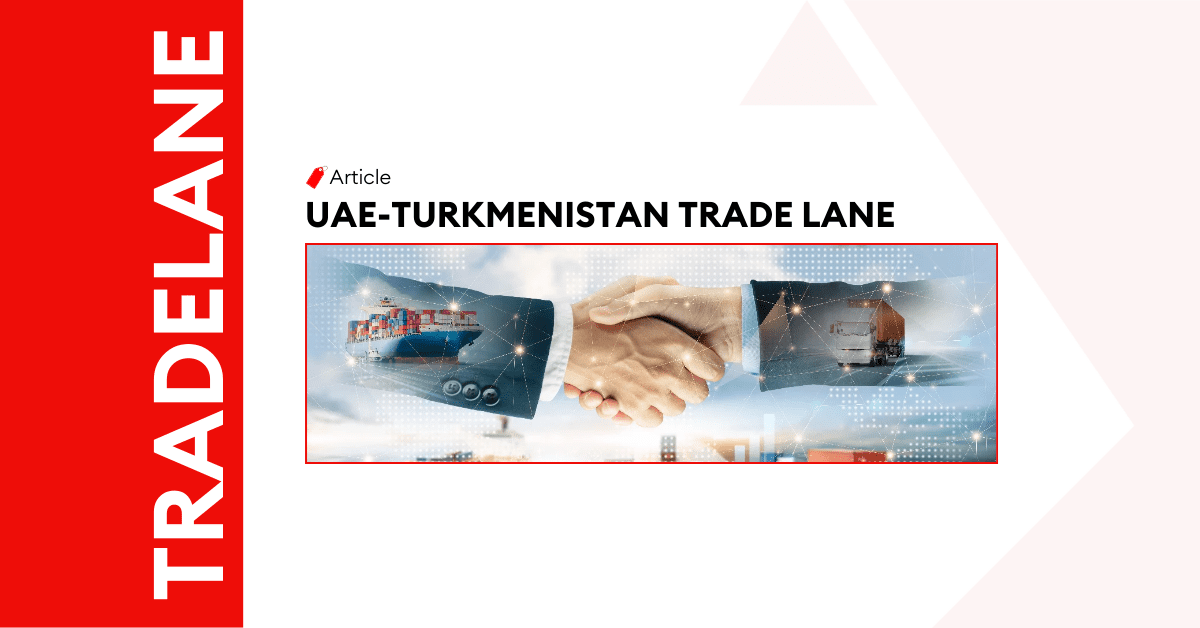
Post a comment
You must be logged in to post a comment.